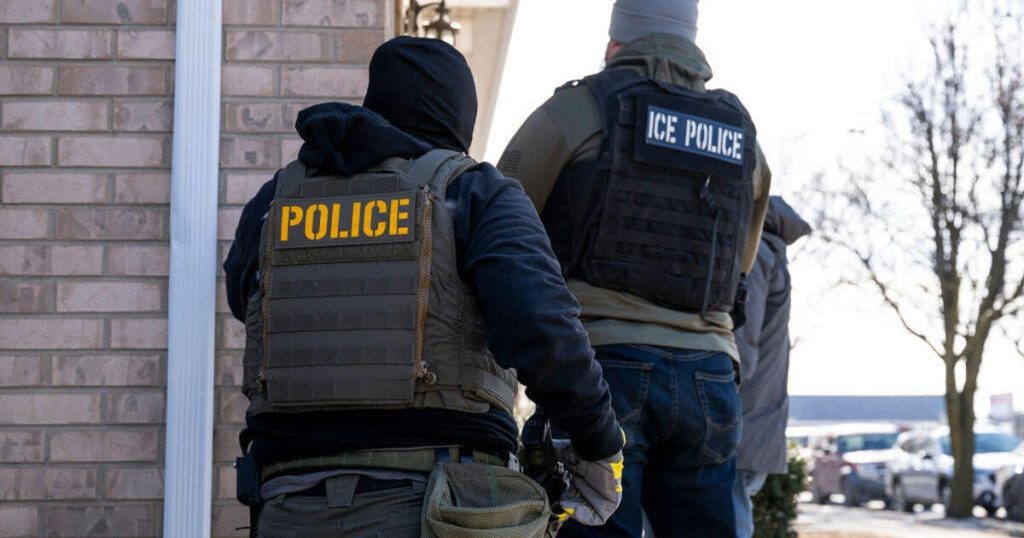The Department of Homeland Security (DHS) has initiated polygraph testing for its employees in response to internal leaks regarding ongoing immigration raids, a spokesperson confirmed. Since these tests began approximately three weeks ago, Secretary Kristi Noem has publicly announced plans to target individuals leaking sensitive information that jeopardizes law enforcement operations. The actions are part of an aggressive campaign led by the White House to enforce stricter immigration policies and fulfill prior commitments made by President Donald Trump regarding mass deportations.
| Article Subheadings |
|---|
| 1) Implementing Polygraph Tests to Address Leaks |
| 2) Overview of Immigration Raids |
| 3) Impact on Law Enforcement and Public Safety |
| 4) Response to Policy Changes and Legal Challenges |
| 5) Accountability and Transparency in Immigration Enforcement |
Implementing Polygraph Tests to Address Leaks
In an effort to mitigate unauthorized disclosures of information, the DHS has begun administering polygraph tests to its personnel. The initiative aims to identify those responsible for leaking sensitive operational details to the media about ongoing immigration raids. According to Secretary Kristi Noem, who emphasized the significance of the department’s operations, “We plan to prosecute these two individuals and hold them accountable for what they’ve done.” The polygraph examinations commenced roughly three weeks ago, but specific figures concerning how many employees have participated remain undisclosed. This proactive measure reflects the department’s urgent approach to safeguarding its ongoing missions and ensuring internal integrity.
Overview of Immigration Raids
The current immigration crackdown under the Trump administration has escalated the number of raids conducted by U.S. Immigration and Customs Enforcement (ICE). Reports indicate that in February alone, ICE apprehended over 20,000 undocumented immigrants across multiple states in an intensified operation to enforce federal immigration law. The DHS’s shift towards aggressive enforcement tactics is in line with President Trump‘s campaign promises aimed at reducing illegal immigration. As part of this increased enforcement strategy, personnel from various agencies, including the Bureau of Alcohol, Tobacco, Firearms and Explosives, have been requested to assist in these operations, emphasizing a multi-agency cooperation in achieving immigration objectives.
Impact on Law Enforcement and Public Safety
The implications of these immigration raids extend beyond the individuals apprehended; they also significantly impact law enforcement operations and public safety. Secretary Noem has raised concerns that leaks about these operations could endanger the lives of officers involved in these targeted enforcement actions. She highlights the potential risks associated with revealing sensitive information that may allow those targeted to evade law enforcement operations. This rationale forms the backbone of the polygraph testing initiative, illustrating the administration’s commitment to improving operational security, maintaining the effectiveness of enforcement actions, and ensuring the safety of the officers tasked with executing them.
Response to Policy Changes and Legal Challenges
The Trump administration’s immigration policies have resulted in notable amendments from previous regulations. Notably, the administration has rescinded a Biden-era policy restricting immigration arrests near sensitive locations such as schools and places of worship. While proponents of the new approach argue it is crucial for effective enforcement, critics express concern about potential overreach and the negative impact on communities of color. For instance, the policy changes are facing legal challenges, signaling a contentious debate surrounding immigration enforcement in the U.S. As the DHS navigates these complexities, the focus remains on operational efficiency while addressing public safety concerns.
Accountability and Transparency in Immigration Enforcement
Secretary Noem has defended the publicity surrounding ICE’s immigration raids, referring to it as an accountability measure for the agency’s processes. She stated, “It’s not a spectacle. This is our nation’s law enforcement — judicial process.” According to her remarks, transparency is essential for fostering trust in law enforcement practices, and she believes that the visibility of these operations serves a dual purpose: ensuring adherence to legal standards and holding the agency accountable for its actions. As the conversation around accountability continues, it remains to be seen how these dynamics will evolve in the context of ongoing public debates on immigration policy.
| No. | Key Points |
|---|---|
| 1 | DHS is conducting polygraph tests to identify employees leaking sensitive operational information. |
| 2 | ICE apprehended over 20,000 undocumented immigrants in February alone, reflecting an intensified enforcement campaign. |
| 3 | There is growing concern regarding the safety of law enforcement personnel amidst leaks about operations. |
| 4 | New policies allow ICE to conduct arrests near sensitive locations, which has sparked criticism and legal challenges. |
| 5 | Secretary Noem emphasizes transparency as a method of ensuring accountability in immigration enforcement actions. |
Summary
The Department of Homeland Security’s implementation of polygraph tests highlights its commitment to internal security and the enforcement of immigration laws. Coupled with robust immigration raids that have resulted in significant arrests, the administration’s approach is met with both support and opposition. The ongoing dialogues around accountability, transparency, and community impact will play a pivotal role in shaping the future of immigration enforcement in the United States.
Frequently Asked Questions
Question: Why is DHS conducting polygraph tests?
DHS is conducting polygraph tests to identify employees who may be leaking sensitive information about immigration operations, thereby compromising the safety and effectiveness of law enforcement activities.
Question: What has been the outcome of recent immigration raids?
Recent immigration raids have resulted in over 20,000 arrests of undocumented immigrants in February, as part of a broader initiative to enforce federal immigration laws stringently.
Question: How has the public responded to the changes in immigration policy?
Public response has been mixed, with some supporting the tougher approach to enforcement and others criticizing potential overreach and negative impacts on vulnerable communities, leading to ongoing legal challenges.


